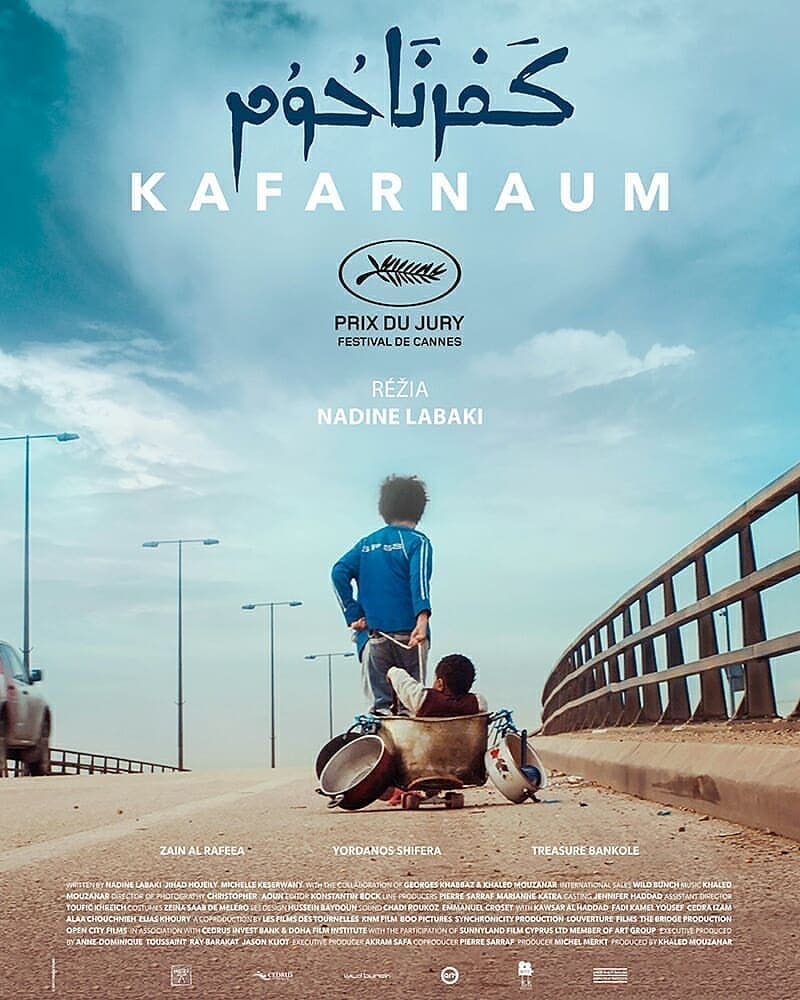I’ve now had a week of Arabic language cinema, with several examples from the small country of Lebanon, where director Nadine Labaki has made a number of films to increasing critical notice starting with the likeable Caramel (2007). Now her latest film Capernaum (referencing ancient Palestine in the Bible, but focusing on Syrian refugees) is apparently the highest-grossing Middle Eastern film ever, so I could hardly omit it this week. I visited the country in 2017 and found it to be both beautiful and also enormously varied, with many different people living in close quarters, not least the huge number of Syrian refugees whom you can’t help but see everywhere (whether the refugee camps dotted across the valleys, or the homeless beggars on the streets of Beirut). When it came out, I remember reading some savagely negative reviews of the film, but equally I’ve seen a lot of praise, so I feel conflicted, and can understand the arguments on both sides.
I don’t exactly know how to feel about this film, though I know exactly how the director wants me to think, because it’s not exactly subtle. That said, perhaps there’s a case that subtlety is beside the point when you’re looking at the state of being a refugee (or the children of one), about being dehumanised by government decrees and forced into ghettoes, separated from parents with no legal recourse, having almost no opportunities and thus a ripe target for exploitation: perhaps that’s the kind of attitude that history has already taught us leads to the greatest horrors, and whatever creative strategy can be deployed should be applauded.
I don’t know this kind of life, of course, but this film seems to delight in presenting the most abject and dehumanising experiences and serving it up for our entertainment. I hope it changes minds and policies, because it must have been difficult to repeatedly force children to act through what’s shown here, even if it reflects something of some of their real lives. There are compensations: the central performance of young Zaid (Zaid Al Rafeea) is excellent, not precocious or cute, but just the right level of gritty determination butting up against the reality of what he can possibly hope to achieve as such a young person, not to mention the Ethiopian woman who plays Rahil (Yordanos Shiferaw), who is also brilliant. But the picaresque narrative as Zaid bounces around various inadequate situations is constantly interrupted by a court case in which the kid is suing his parents for being born, which feels like a very self-consciously filmic framing device rather than something from lived experience, more like a crutch for the plot.
For all this, I admire much of the filmmaking craft, even if I feel conflicted about the way it’s used. Perhaps I’m being unfair: this is undoubtedly an angry film about a topic (children in peril) that inspires righteous fury, as it does in me when I think about it, about the plight of so many young people in such a small and under-equipped country as Lebanon, and about the dangerous futures for them, for their (new) country, for the region. I just didn’t always feel like this film was the best way of presenting it, and I felt somewhat similarly about, for example, Dheepan, but then again I’ve also just had a quick look at other online responses and I see a lot of love (and also a lot of defensive reactions against opinions apparently not a million miles from my own), so I’m willing to concede I’m misjudging it.
CREDITS
Director Nadine Labaki نادين لبكي; Writers Labaki, Jihad Hojaily جهاد حجيلي and Michelle Keserwany ميشيل كيسرواني; Cinematographer Christopher Aoun; Starring Zain Al Rafeea زين الرافعي, Yordanos Shiferaw يوردانوس شيفراو; Length 126 minutes. Seen at Curzon Bloomsbury, London, Sunday 24 February 2019. 


